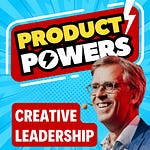How Chris Thomason is challenging everything we know about meetings, brainstorming and thinking itself
From the industrial heartbeat of Birmingham to the deep tunnels of South African gold mines, Chris Thomason’s career has been anything but ordinary. He's rebuilt failing companies. He’s helped global giants unlock millions in revenue. But perhaps most importantly, he’s asking better questions that are changing how we work.
In this episode, I sat down with the creator of Freaky Thinking and the Meeting Maximizer to explore one simple but powerful idea:
Most meetings are broken because they were never designed to create value.
Not because of bad agendas.
Not because people are disengaged.
But because they focus on answers to the wrong questions.
🤯 Why Brainstorming Might Be Broken
Most of us were taught that brainstorming is the holy grail of creativity. Get a group in a room. Shout out ideas. Write them on Post-it notes. Keep going until the whiteboard looks like a Jackson Pollock painting.
Chris doesn’t buy it.
“I’ve run the experiments. I’ve tested it. And honestly—I hate brainstorming. It’s demeaning to real thinking.”
Here’s why:
You’re forced to think on the spot, which favors the loudest voices, not the best ideas.
The “one person speaks at a time” rule means there's always noise—never time to think.
People start aligning to group norms too quickly. Nod at an idea? Suddenly, it's everyone’s focus.
You fill space with quantity, not quality. 100 ideas. 95 are trash. Maybe more.
Instead, Chris proposes a thinking-first model:
Pose an open-ended but tightly scoped killer question
Leave the room. Literally.
Let it percolate during dog walks, showers, or driving commutes
Reconnect later to explore—not rush—the answers
“You don’t get great ideas in meetings. You get them in moments of reflection.”
🔍 What Makes a Killer Question?
According to Chris, it’s not the questions you already know the answer to. Those are performance traps designed to make you look clever.
A real killer question:
Is hard to answer
Has no immediate or obvious solution
If answered, would unlock serious value
Forces people to say, “I don’t know”—and that’s okay
Chris believes that saying “I don’t know” in a business setting should be seen as a power move, not a sign of weakness.
In fact, he’d like to abolish:
“All questions where the asker already knows the answer.”
Because those questions? They waste time. They waste thinking. And they kill creativity.
🔧 Introducing: The Meeting Maximizer
Chris’s Meeting Maximizer isn’t a gimmick. It’s a complete rethink of how we use the most expensive resource in any organisation: people’s time and brainpower.
Here’s how it works:
Start with a killer question – One you’ve never asked before. One that really matters.
Don’t try to answer it in the meeting – No brainstorming. No pressure.
Give everyone time – Let it sit. Days, weeks. Let the subconscious do its work.
Collect asynchronous input – Use a shared document or platform.
Curate the best responses – Review them before the next meeting.
Discuss, refine, act – Then, and only then, do you bring the question back to the group.
This approach leverages a concept many of us overlook:
💡 We think better outside meetings than in them.
It’s why our best ideas arrive mid-shampoo, not mid-sprint planning.
🤖 What About AI? Will ChatGPT Replace BAs?
Chris is optimistic—but not naïve.
“ChatGPT is like a junior colleague with access to the world’s knowledge, but no experience. It’s great for accelerating learning. Not replacing judgement.”
He encourages BAs to break down their tasks and explore how AI can assist with:
Research and synthesis
Drafting stakeholder documents
Learning new domains quickly
Exploring alternatives before a workshop
Becoming a faster expert, not a fake one
But the magic still lies in how you ask the questions.
🔁 Meetings vs Workshops: Know the Difference
Chris draws a firm line between the two:
Meetings = Reporting sessions. Information exchange.
Workshops = Creation spaces. Problem solving. Co-design.
And he warns:
“If you’re just having meetings to brainstorm, you’re probably wasting your team’s genius.”
🎤 Chris at BA Life: Why Brainstorming is 72 Years Too Old
Chris will be giving a keynote at the upcoming BA Life Conference, and let’s just say… he’s got strong opinions.
Brainstorming? Born in 1953.
Most BAs wouldn’t use a tool that’s 72 years old in any other part of their role.
So why are we still defaulting to it for ideation?
He’ll be talking about:
How to think differently with Freaky Thinking
Why killer questions sit in the “Important but Not Urgent” quadrant of the Eisenhower Matrix
And how you can be the BA who transforms meetings from time-wasters into value generators
⚡️Final Thought: Be the BA Who Changes the Question
Chris left us with a challenge. One that you might want to try tomorrow:
For 24 hours, refuse to answer any question that already has an obvious answer.
And if someone asks you one? Respond with:
“Do you have a better question we should be asking?”
You might be surprised at what happens.
Guest: Chris Thomason
Chris Thomason is the founder of Ingenious Growth and a Chartered Mechanical Engineer with a truly global and eclectic business background, having lived and worked across the UK, Africa, and Australia. From turning around a failing manufacturing company into a market leader, to helping major corporates like HSBC, Toyota, and Vodafone unlock millions in revenue through innovative thinking, Chris has consistently applied what he calls “business creativity” to solve complex challenges. His unconventional journey—from deep-level gold mining in South Africa to writing award-nominated business books—has shaped a unique perspective on growth, rooted in asking better questions rather than chasing quick answers. With a track record that includes civil war zones, platinum mines, and boardrooms alike, Chris now helps organisations think differently and thrive through the structured creative approaches of Ingenious Growth.










